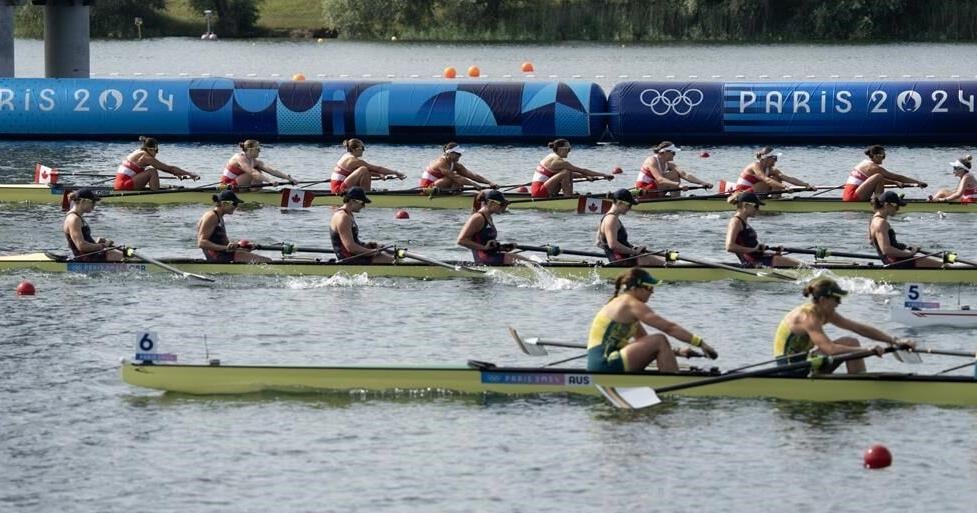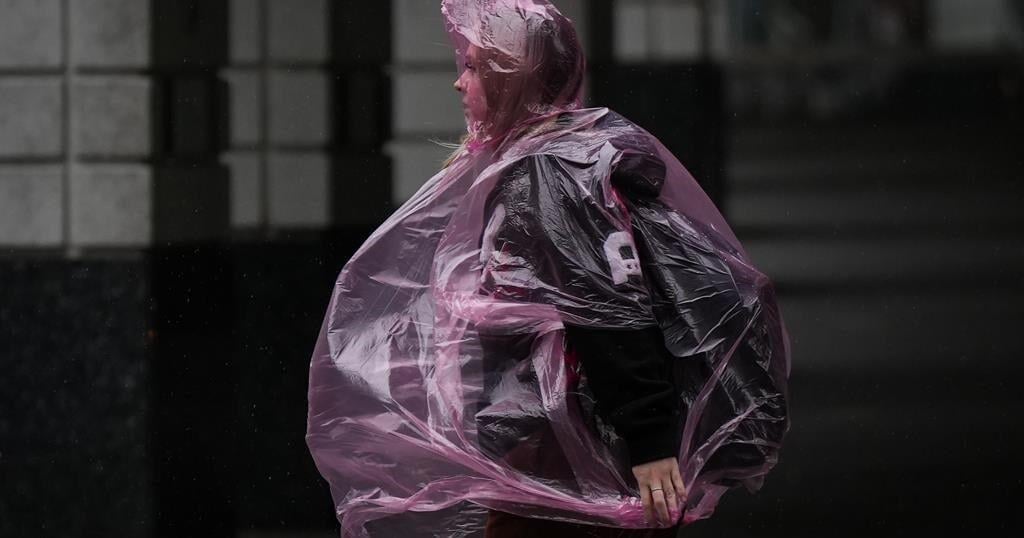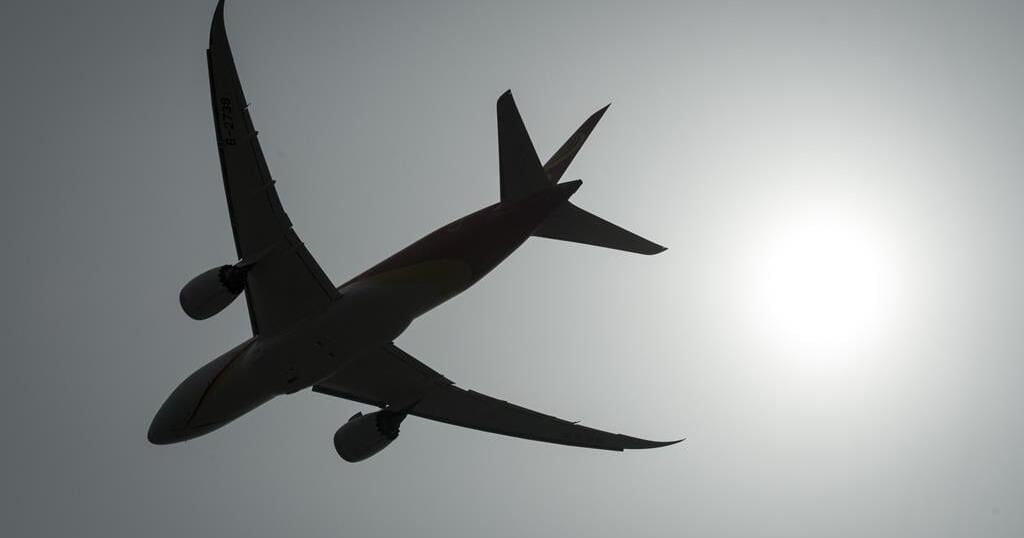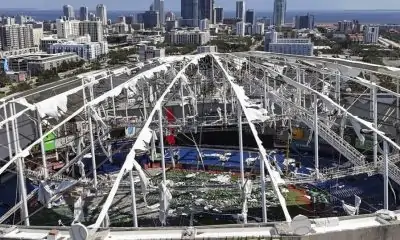PARIS – Canada’s women’s eight rowing team may not have defended its Olympic title, but it pulled together when it mattered most and came away with a silver medal.
There was no silver lining for Damian Warner’s title defence. The Canadian decathlete fell out of medal contention when he hit the bar three times in the pole vault, dropping him from second to 17th with two events to go.
Day 8 got off to an eventful start for Canadian athletes at the Paris Games on Saturday, and Canada’s women’s soccer quarterfinal match against Germany, Felix Auger-Aliassime’s bronze-medal tennis showdown against Italy’s Lorenzo Musetti and Summer McIntosh’s return to the pool ensured the drama would continue.
The rowing silver, Canada’s 12th medal of the Games, increased Canada’s streak to eight days on the podium since medals started being awarded after the opening ceremony. Canada’s best opening medal streak is nine days, set at the 2016 Rio Olympics.
The Canadian rowers finished with a time of five minutes 58.84 seconds at Vaires-sur-Marne Nautical Stadium, behind gold medallist Romania which finished in five minutes 54.39 seconds.
Canada found itself in a tight battle with Britain for second with 500 metres to go, but was able to hold off its rival to claim silver.
The Romanian team put on a dominant performance, leading for three-quarters of the race and finishing four seconds in front.
Rower Avalon Wasteneys of Campbell River, B.C., said the eights team had a “tough few years” after winning the gold medal at the Tokyo Games, including many changes to the team, but managed to come together at the right moment.
“At the end of the day it was all about belief,” she said. “We went out on that course and we knew that we were going to give our best possible race we could do, on the day it mattered.”
The 34-year-old Warner, from London, Ont., was sitting in second in the decathlon with 6,428 points, 72 behind Germany’s Leo Neugebauer, after seven events. He dropped to 17th after failing to score in the pole vault.
Warner was looking to defend his Olympic title from the Tokyo Games in 2021, where he had set an Olympic record with 9,018 points.
Warner was looking to join American Bob Mathias (1948, 1952), Great Britain’s Daley Thompson (1980, 1984) and American Ashton Eaton (2012, 2016) as the only two-time Olympic gold medallists in the men’s decathlon.
Canada had high hopes for another decathlon medal heading into the Paris. But defending world champion Pierce LePage pulled out shortly before the Games began to focus on his recovery from a herniated disc, and Warner’s medal bid ended in heartbreak.
Elsewhere on the track, star sprinter Andre De Grasse of Markham, Ont., moved on to the semifinals of the men’s 100 metres at the Paris Olympics.
De Grasse, who won bronze in the event at the last two Games, finished third in Heat 7 with a time of 10.07 seconds.
In gymnastics, Ellie Black of Halifax finished sixth in the women’s vault in what could be her final Olympic event.
Black, competing at her fourth Games, posted an average score of 13.933 over two vaults to finish behind medallists Simone Biles of the United States, Rebeca Andrade of Brazil and Jade Carey of the U.S. Vancouver’s Shallon Olsen was eighth.
Later Saturday, Montreal’s Auger-Aliassime looked for his second tennis bronze of the Games when he faced Musetti. Auger-Aliassime and Ottawa’s Gabriela Dabrowski claimed the mixed doubles bronze on Friday.
Canada looked to continue its impressive run in women’s soccer in a quarterfinal showdown with Germany in Marseille. The defending-champion Canadians overcame a six-point penalty from FIFA to advance to the knockout stages.
And McIntosh was set to swim in the women’s 200-metre medley final. The 17-year-old phenom from Toronto already has two gold and a silver at these Games.
This report by The Canadian Press was first published Aug. 3, 2024.





















